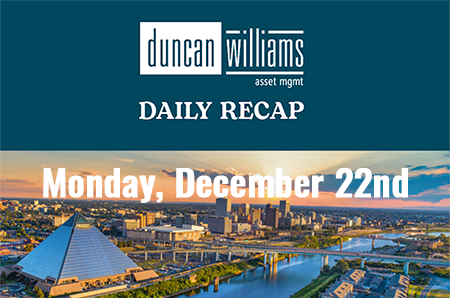“Investors should own a concentrated portfolio of high-quality businesses that can deliver strong organic growth even if the economy falters.” - Michael Burry

Michael Burry’s Investment Wisdom: Why a Concentrated Portfolio of High-Quality Businesses is Key in Uncertain Times
Few voices resonate with the same authority as Michael Burry’s in investing. Known for his prescient bets, including his infamous prediction of the 2008 financial crisis, Burry has consistently offered insights that challenge the status quo and invite investors to think more critically about their strategies. One of his latest pieces of advice encapsulates this approach: “Investors should own a concentrated portfolio of high-quality businesses that can deliver strong organic growth even if the economy falters.”
This statement reveals a carefully crafted approach to navigating uncertain times. It advocates for strategic focus, resilience, and a commitment to quality, all of which can help safeguard returns and build wealth even during economic downturns. Here’s what Burry’s advice means and how investors can apply it to their portfolios.
The Value of a Concentrated Portfolio
Contrary to the belief that diversification is the key to mitigating risk, Burry suggests a concentrated portfolio approach. By investing in fewer carefully chosen companies, investors can understand and manage each asset more deeply, leading to a more substantial alignment with their goals and risk tolerance.
A concentrated portfolio allows investors to invest in businesses they believe will thrive over the long term instead of spreading resources thinly across many companies. This selective approach allows investors to focus on quality over quantity, allowing them to benefit more if these companies succeed. However, concentration also means an investor’s portfolio may be more sensitive to the ups and downs of those few companies. Thus, careful selection is essential.
Why High-Quality Businesses Matter
In Burry’s view, high-quality companies have specific characteristics that set them apart. They typically possess competitive solid advantages, reliable cash flows, and sound management. Such companies often dominate their sectors, maintain loyal customer bases, and have resilient financial structures.
These attributes make high-quality companies more likely to endure economic challenges. During downturns, weaker companies may struggle to survive, whereas high-quality companies often emerge stronger or at least more stable. Investing in these types of companies reduces exposure to the weaknesses that may be present in lesser competitors, adding an extra layer of security to an investor’s portfolio.
The Power of Organic Growth
When Burry emphasizes “organic growth,” he refers to a company’s ability to grow from within through its operations rather than through acquisitions or external financing. Organic growth is an essential measure of a company’s health because it shows that the company can increase revenue and profits without relying on external factors, such as mergers or acquisitions, which may not be sustainable over the long term.
Businesses that achieve organic growth often offer compelling products or services that repeatedly attract customers, a powerful indicator of their strength. Companies that can grow organically also tend to be less vulnerable to market fluctuations and more agile in their operations. Even during economic slowdowns, these companies may retain a solid customer base, giving them a cushion against adverse conditions.
Resilience in Economic Downturns
Burry’s statement is particularly relevant to potential economic downturns, periods of financial stress that test businesses' resilience. While weaker companies may falter, high-quality businesses with solid fundamentals are better equipped to weather such storms.
Investing in companies that can thrive even when the economy falters offers protection. Businesses that provide essential goods and services or have strong brand loyalty tend to maintain demand even when consumers are cutting back. These companies can often continue to generate revenue and profits even in challenging times, making them valuable assets for any investor’s portfolio.
Putting Burry’s Advice into Practice
For investors looking to apply Burry’s strategy, here are some steps to consider:
1. Focus on Quality Over Quantity: Select companies that demonstrate financial resilience, a strong market position, and a proven ability to grow independently. Quality should be prioritized over sheer numbers in the portfolio.
2. Understand the Business Thoroughly: With a concentrated portfolio, each company’s success plays a more significant role in overall returns. Research each business, understanding its strengths, risks, and growth potential. Ideally, an investor should feel confident about holding each company long-term, even in a downturn.
3. Evaluate Organic Growth Potential: Look for companies that have consistently increased their revenue and profits through internal growth rather than acquisitions or heavy debt. This organic growth strongly indicates sustainability and resilience, especially during economic slumps.
4. Prepare for Economic Uncertainty: Concentrating on high-quality businesses with solid fundamentals offers a buffer against market downturns. While no investment is entirely immune to economic challenges, companies that provide essential services or products or are leaders in their field tend to weather storms better than most.
Final Thoughts
In advocating for a concentrated portfolio of high-quality businesses with robust organic growth potential, Michael Burry urges investors to think more carefully about the resilience and durability of their investments. It’s a call to focus on companies that can stand the test of time and continue to deliver value even in uncertain economic conditions.
Investing in such businesses can help investors build a portfolio that generates returns and provides stability when markets get rough. This approach may require more patience and research than a broadly diversified strategy. Still, as Burry’s track record shows, it can offer compelling rewards for those willing to think differently and commit to high-quality, sustainable investments.
Michael Burry is an American investor, hedge fund manager, and physician best known for predicting and profiting from the 2008 financial crisis. Born in 1971, Burry trained as a doctor but shifted to finance, founding the hedge fund Scion Capital in 2000. He gained fame after foreseeing the subprime mortgage crisis and shorting mortgage-backed securities. This bet netted his fund substantial profits and was later chronicled in Michael Lewis's book The Big Short and its film adaptation. Known for his contrarian, research-intensive approach, Burry has continued to make high-profile investments and market predictions, often sharing his insights on economic tre












